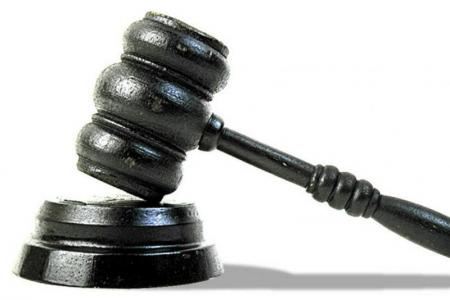
Surgeon suspended for not giving patient sufficient medical leave
by SALMA KHALIK, SENIOR HEALTH CORRESPONDENTAn orthopaedic surgeon has been suspended for eight months for not giving a patient sufficient medical leave.
Dr Kevin Yip Man Hing, who practises at Singapore Sports and Orthopaedic Clinic in Gleneagles Medical Centre, was suspended last year for a similar infraction - also for eight months.
In the latest case, he faced five charges. The Singapore Medical Council's (SMC) disciplinary tribunal proceeded with two, to which Dr Yip pleaded guilty, and the other three were taken into consideration.
The charges against Dr Yip arose from a complaint from a Singaporean who works as a driver.
The first charge stemmed from the man seeking treatment after fracturing his right middle finger. Dr Yip, who treated him on April 10, 2012, put a splint on the finger, gave him both intravenous and oral antibiotics, pain-relief and anti-inflammatory medicine, and two days of medical leave, followed by two days of light duties.
Dr Yip saw him again on April 13 and certified him fit for light duties for two weeks.
The tribunal said such fractures need to be immobilised for two weeks. Given the patient's job, he should have been given two weeks of medical leave and not be put on light duties on the third day after the fracture.
In July that year, the man injured his left shoulder when he tried to grab hold of the back of a lorry while at work. This was the basis for the second charge.
He saw Dr Yip on July 11, three days after hurting himself, and an X-ray did not show any problems. Dr Yip gave him pain killers and anti-inflammatory medicine and put him on light duties for a week. Dr Yip reviewed the case on July 14 and referred him to a physiotherapist, who recommended further investigation into the injury.
A magnetic resonance imaging scan done on Aug 6 showed dislocation of the biceps tendon, a partial tear in another tendon and injury to a third tendon.
The patient was discharged the day after keyhole surgery. He was not given any hospitalisation or medical leave but was certified fit for light duties for 15 days.
The tribunal said: "Given that the patient worked as a driver and had just undergone a procedure that required general anaesthesia and needed extensive rehabilitation to mobilise his shoulder to regain motion after the procedure, he should have been given medical leave of at least four weeks' duration upon his discharge."
For both accidents, the patient did not go to work during the days of light duties - an arrangement Dr Yip made with the man's employer.
The tribunal also said Dr Yip had put the patient at risk as the "employer retained a right to ask him to perform those light duties" and, had the patient refused, could have been denied salary for those days.
Hearing for this case was postponed at Dr Yip's request - pending his and the SMC's appeal against a five-month suspension given by another tribunal.
The period was increased to eight months by the Court of Three Judges in April last year.
That case involved a bricklayer who fell from a scaffolding platform and suffered a fractured collarbone, several rib fractures and head and wrist injuries.
Dr Yip gave him sick leave for the two days he was in hospital and certified him fit for light duties after that.